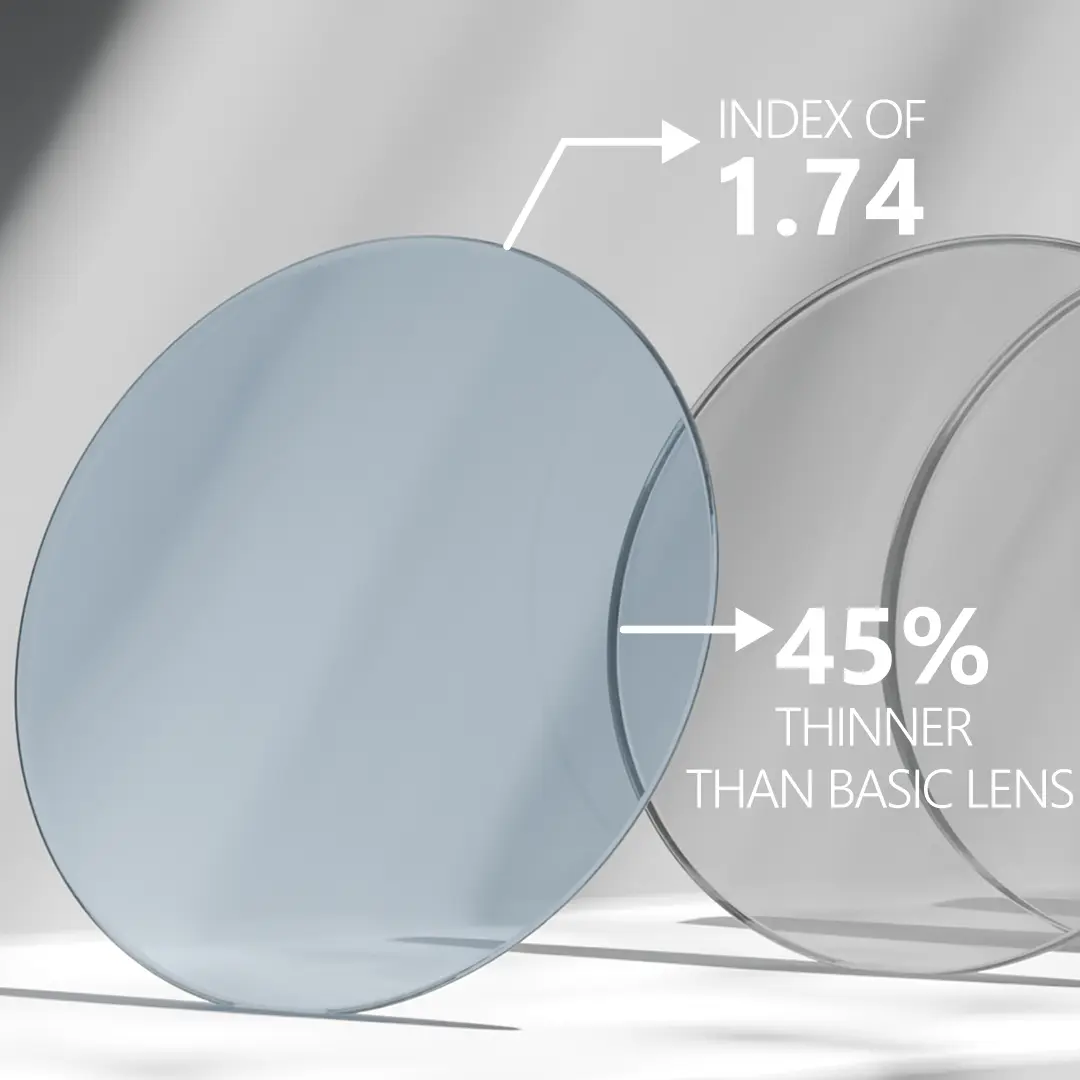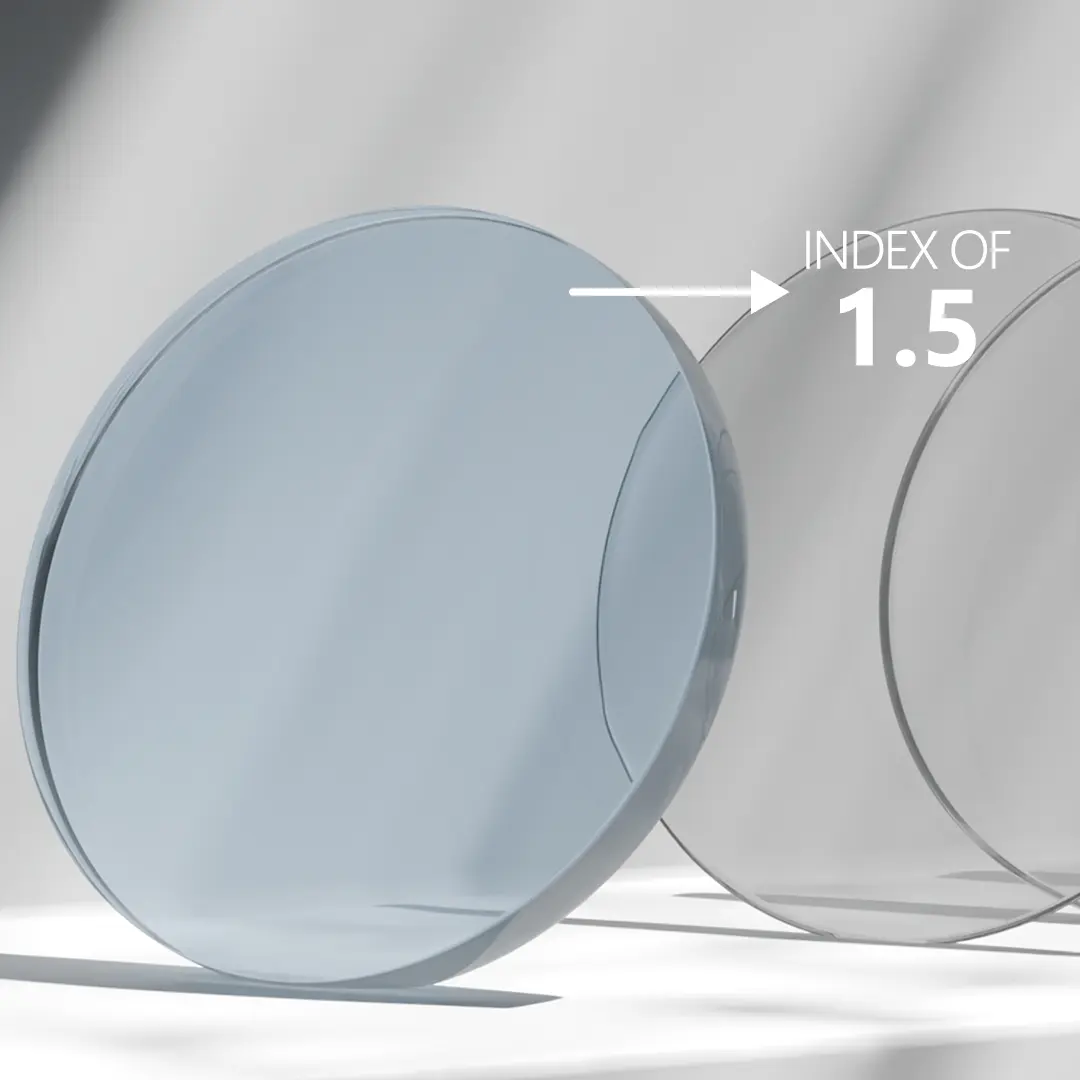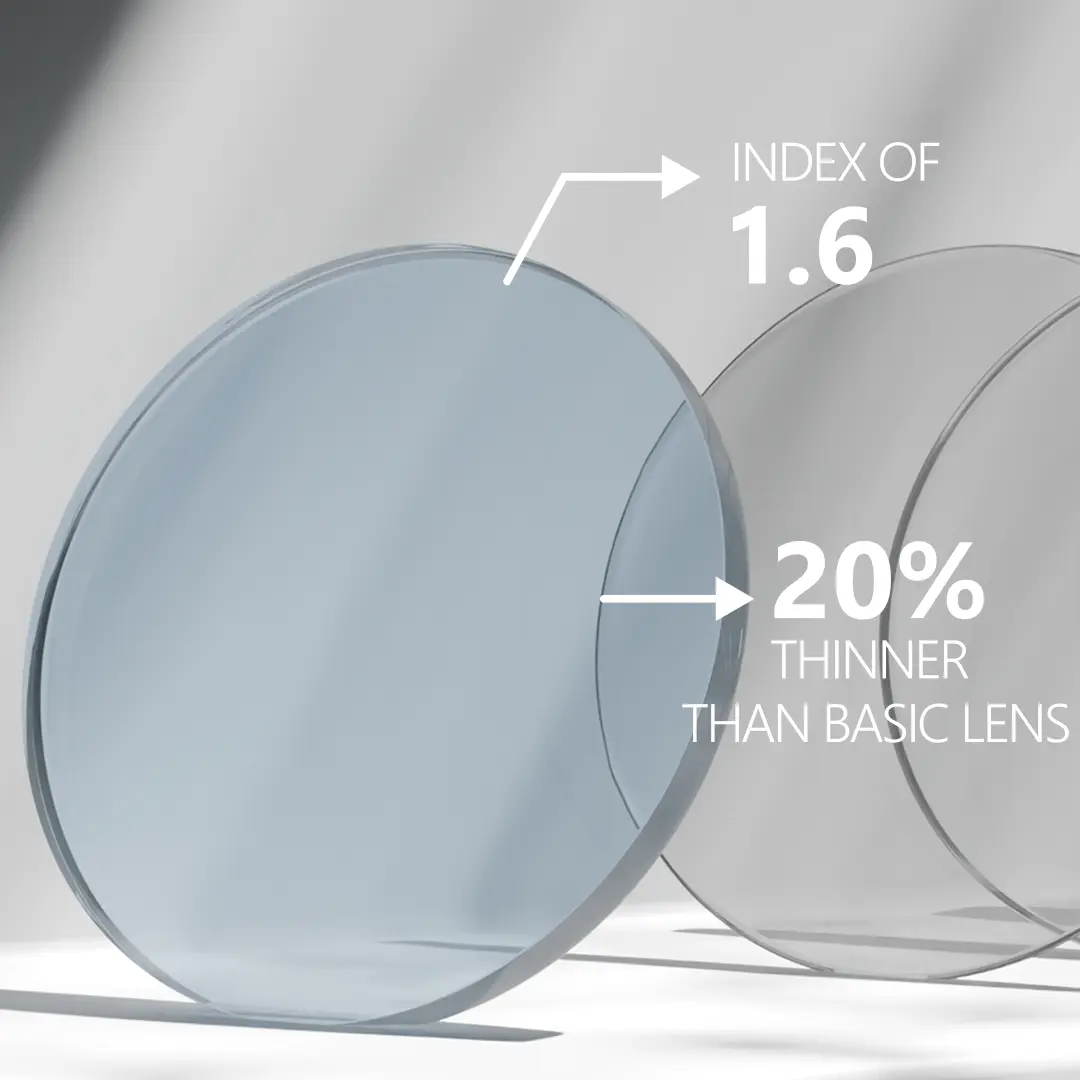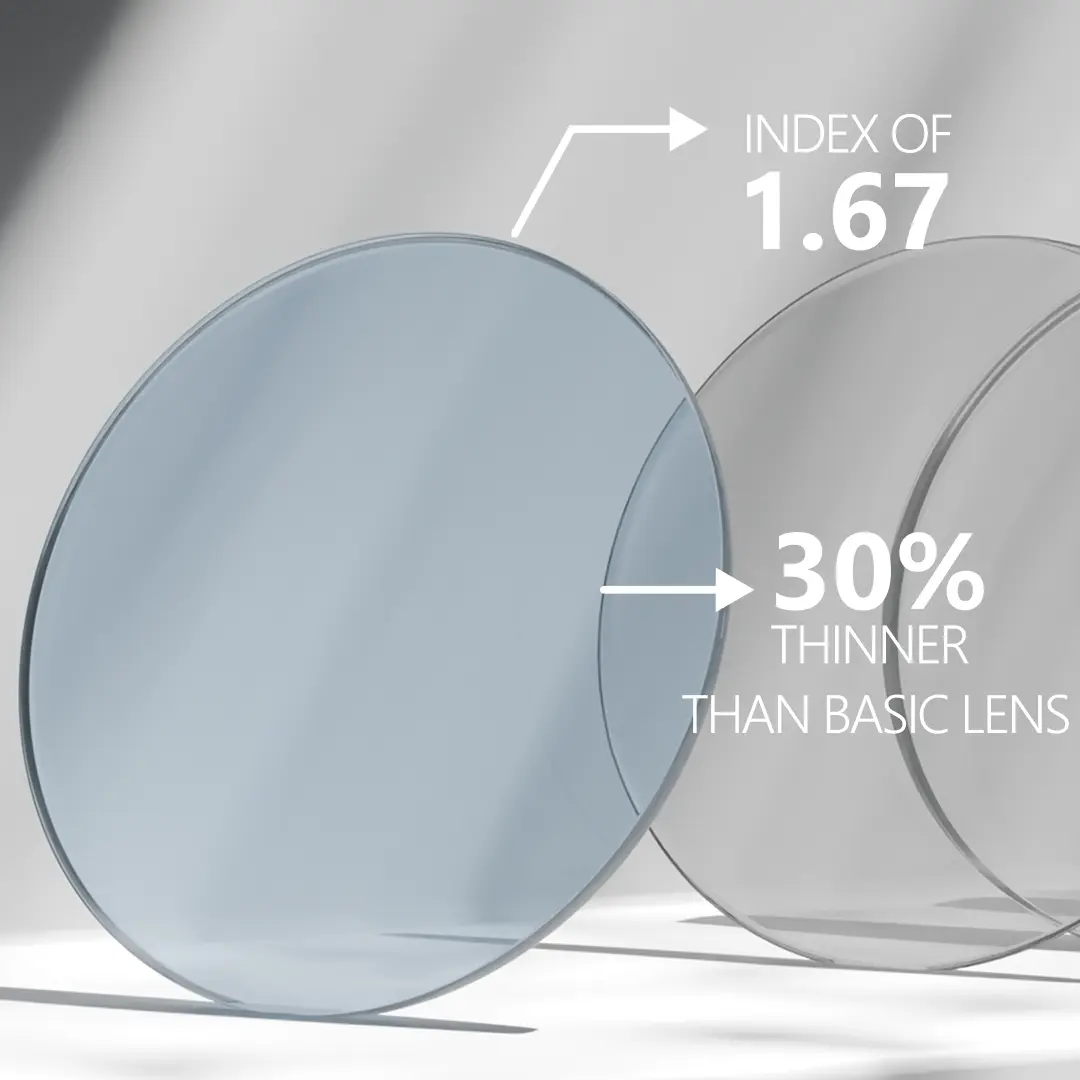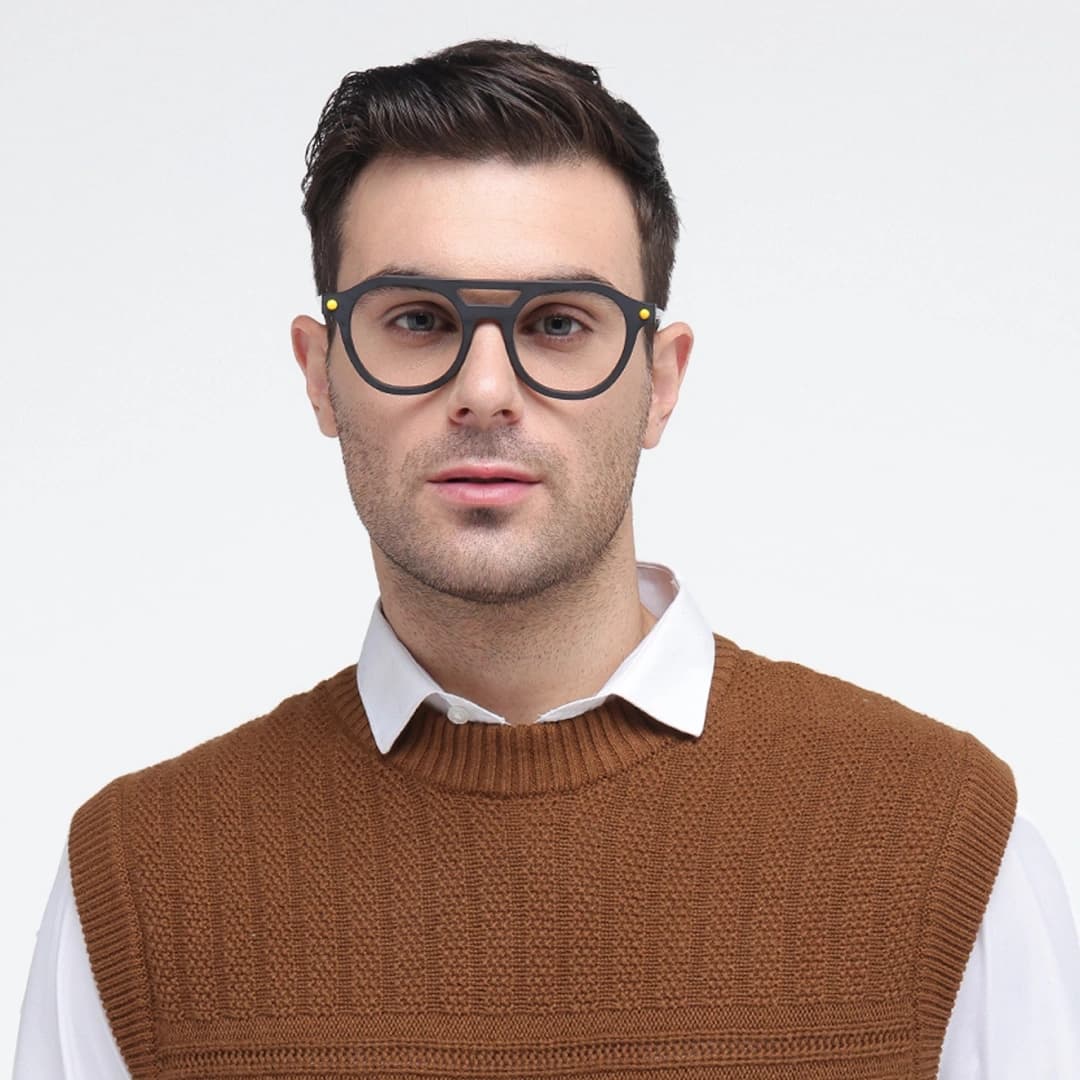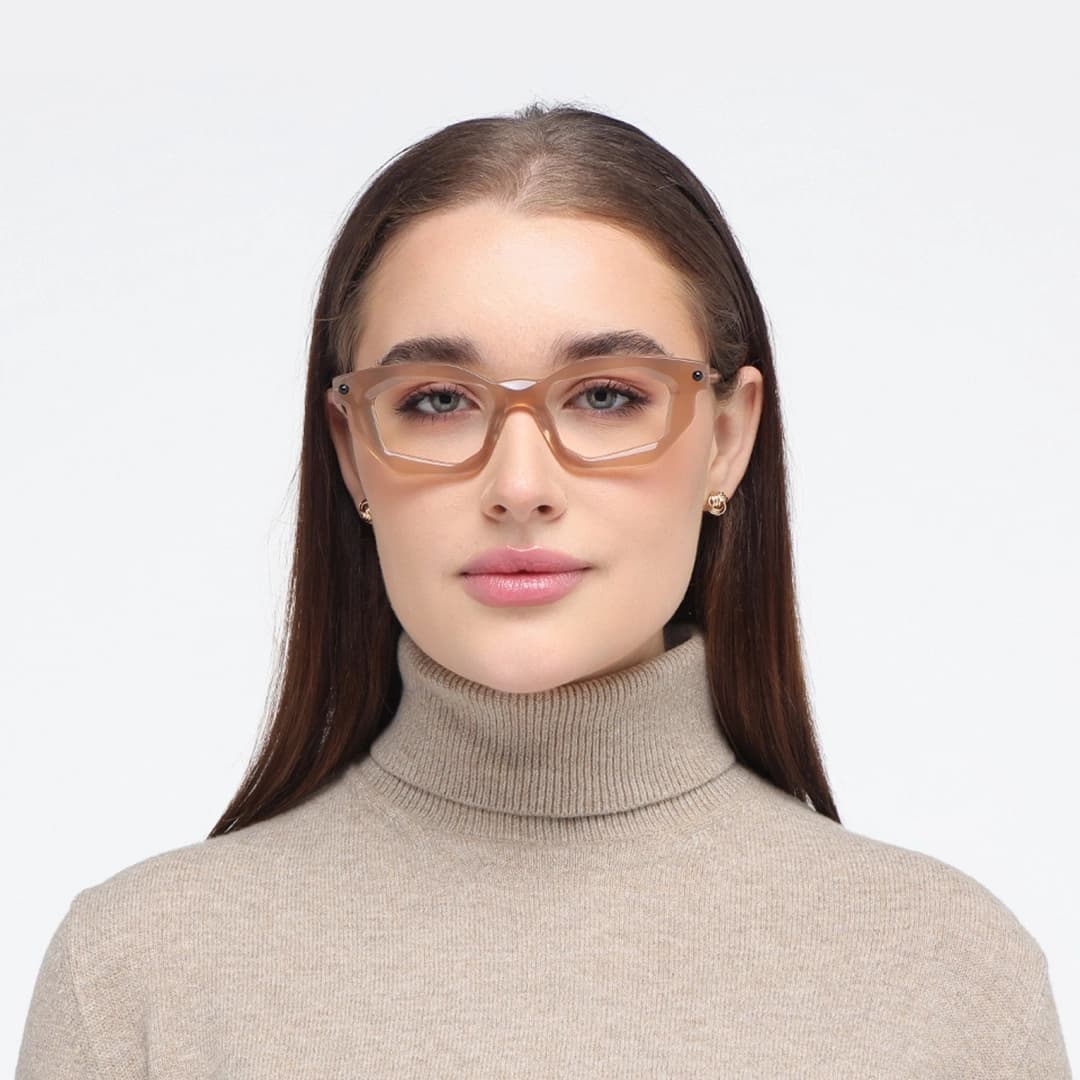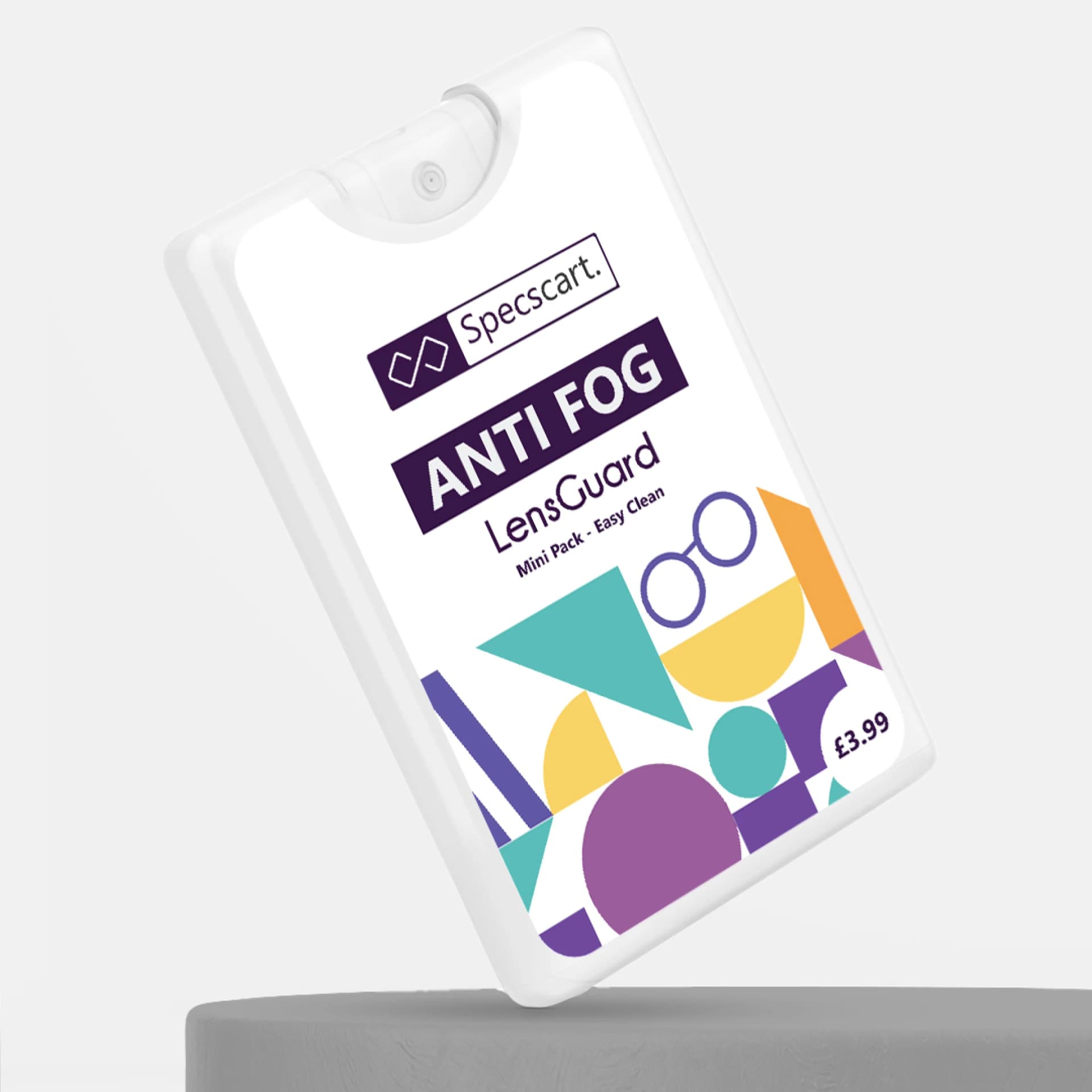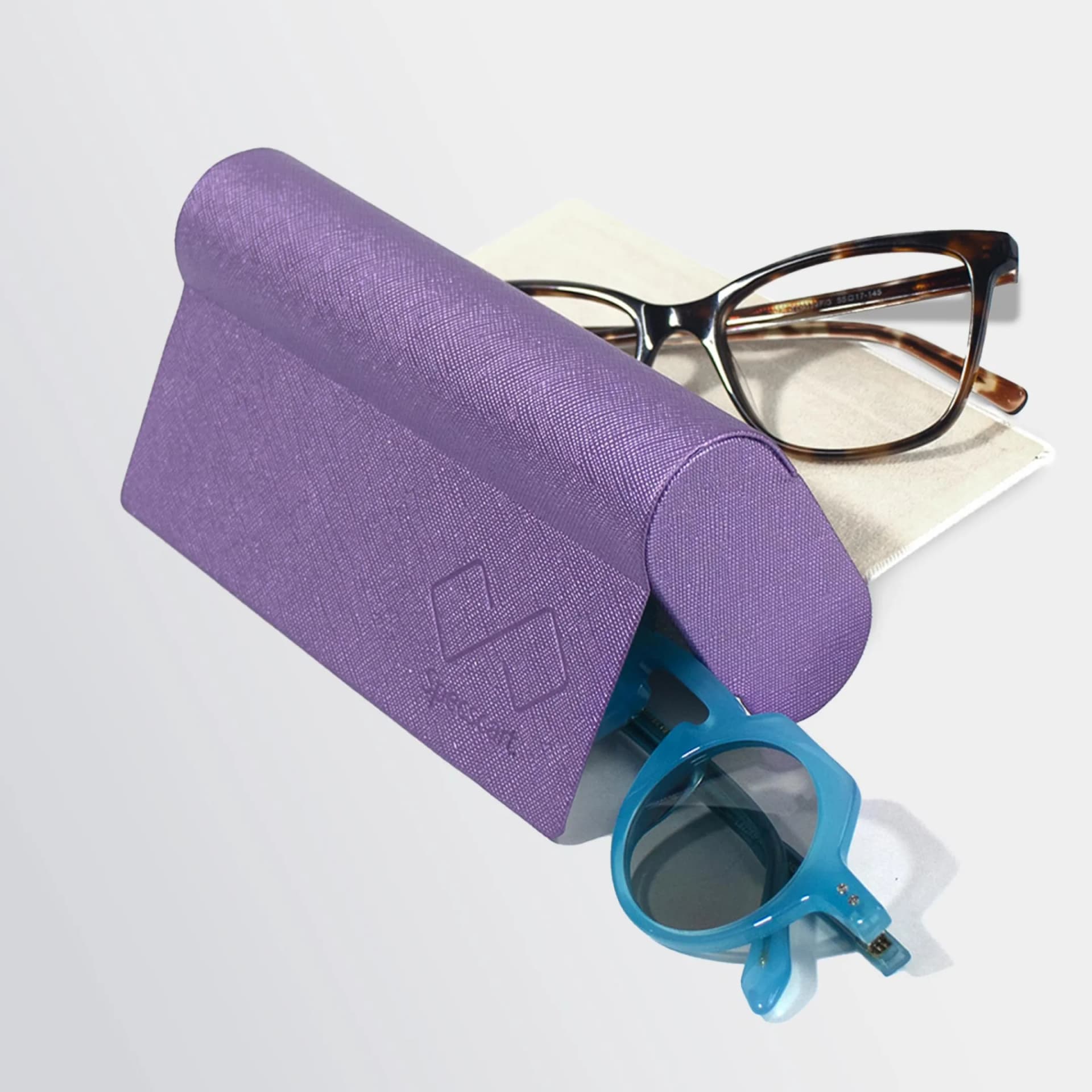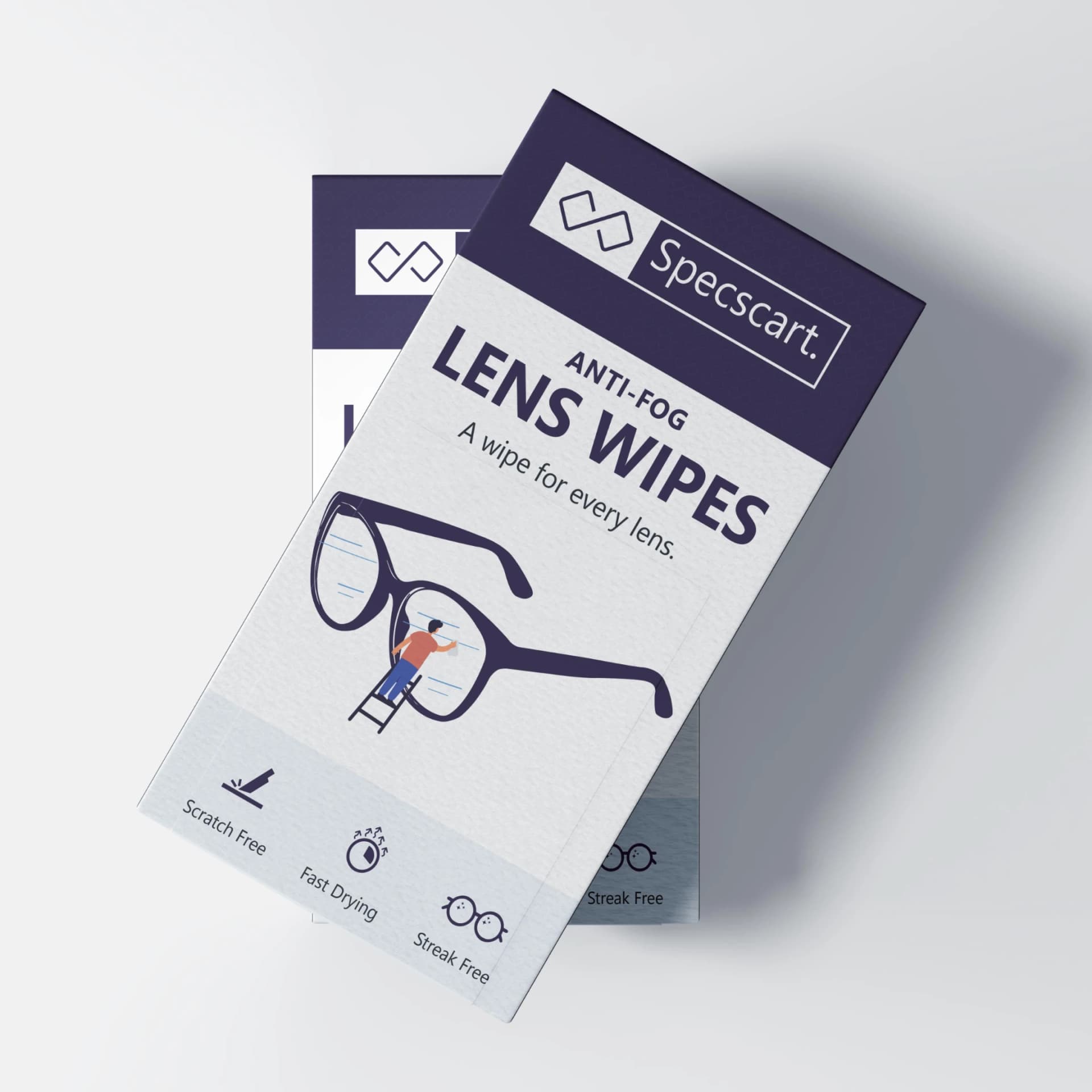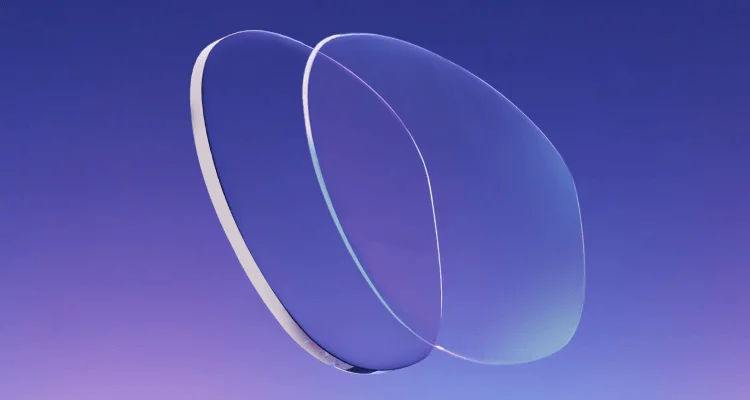
Thin Lenses
A keen vision needs to know what fits in the frame for a clear vision.
What are thin lenses?
As the name suggests, thin lenses are high-index lenses which allow a higher prescription to be packaged in comparatively thinner lenses. The index of a lens refers to how much light it refracts.
Thin lenses are not only lighter, more comfortable and stylish, they are also stronger. That's why they are recommended for rimless glasses, where strength is of particular importance.
Super Ultra Thin lens
Ultra-thin lenses have an index of 1.74 and are around 45% thinner than basic lenses.
Suitable for the powers +/- 10
